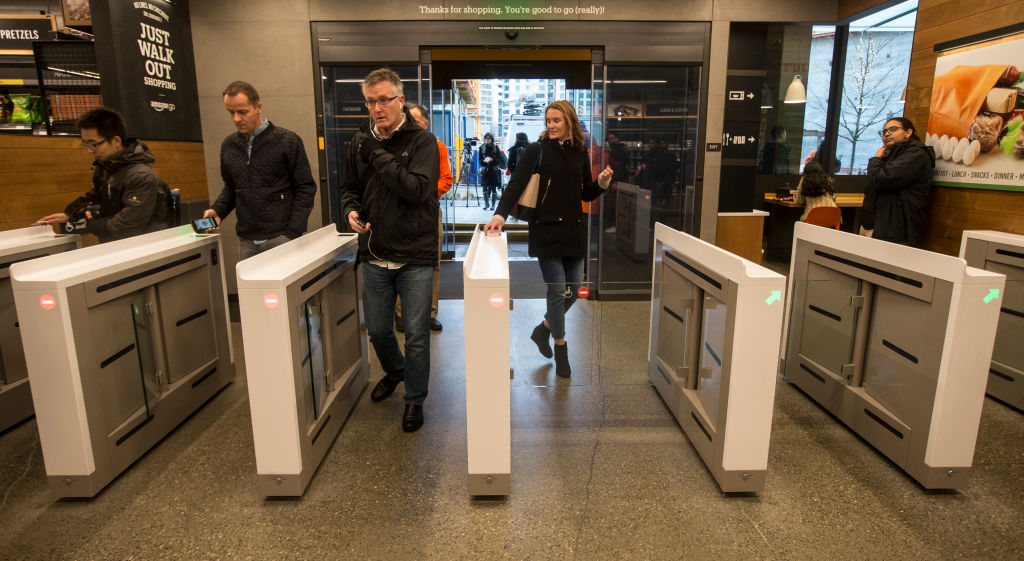The concept of paying for goods is very old. Early settlers paid for goods received by exchanging their own goods and produce. Soon, the barter system gave way to formal currency with a standard value. From then to now, payment procedures have evolved, and are still doing so. Retail payments are no exception.
Today, shoppers depend on the omnichannel experience. With the advent of voice-based home assistant devices, a command such as, “Alexa, order a bag of pet food from (store name)” is going to be quite common. In such a scenario, customers may register one or more payment options with the voice assistant and expect that to be used, and to be alerted when an unlikely amount of money is spent through this channel. In a way, the concerns surrounding payment options are the same as they were a few years ago. However, as a retailer, you must reassure your customers that
a) There are several retail payment systems available to them, and they can choose to pay however they want; and
b) You have taken steps to ensure that transactions across devices are secure.
With this basic premise in mind, let’s explore a few retail payments options available today. You need not to integrate all of them. Instead, choose those options that your customers are likely to prefer.
Related: The Complete Guide To Opening And Operating retail Stores
The different retail payment system :
Web Payment Gateways


Of all the three payment options discussed here, using a payment gateway has been around for the longest time. When cards or internet banking credentials are used to pay for an order, a payment gateway is involved. As the name suggests, a payment gateway acts as a secure intermediary that collects card information from the customer, sends the debit request to the bank and upon the availability of funds, processes the payment.
Stripe and PayPal are both payment gateways, as are WorldPay, CCAvenue, and 2Checkout.
In all of these cases, the ability to read a card, encrypt information, transmit to the issuing bank and receive funds is a standard feature of all payment gateways.
The Pros
- People encounter it on almost every e-commerce site they visit. We are used to seeing the security certificates, a tick-mark on the checkout page and many other visual cues that tell us that our money is safe. In other words, a payment gateway can inspire trust in your customers.
- Payment gateway providers always update their services to protect sensitive information from falling into the wrong hands. They are usually considered very safe.
The Cons
- The greatest drawback of payment gateways is the fairly steep fee you pay the gateway service provider for each transaction.
- Reliability of some gateways is an issue which could lead to a large number of cart-drop offs due to cards being rejected. Pick a gateway which has a wide acceptability range
Card Device Gateways


If you’ve ever paid by card at a retail outlet, you’ve experienced a card device gateway. They function much like the online payment gateways in that they gather card information and debit your bank account in a secure manner.
A distinction must be made here between traditional card swiping machines and modern card readers like Square. Traditional machines that print out a receipt often use Ingenico hardware and Vantiv or Mercury as the card processor and for payment gateway integration. They are swiftly being replaced by their thinner, more mobile-friendly, receipt-free counterparts like Square that are far easier to carry around.
The Pros
- You can carry around options like Square to accept payments at pop-up stores and markets. In retail outlets, a card reader is almost an indispensable feature as of today.
- Having been around for the longest time, customer resistance to swiping cards on a reader is very low.
The Cons
- Some legacy card readers come with fine print clauses regarding lock-ins and severance fee which one should be careful about.
- There is some risk of fraud with card machines, as they can be tampered with to steal and mirror sensitive data.
Wallets


In using a payment gateway, there is no actual storage of money in an intermediate location. When using wallets, consumers store some funds in a wallet and use that balance to pay for services. Apple Pay and Google Wallet find widespread acceptance across stores. Customers use wallets not just to pay online but also to pay at retail outlets with the help of NFC or a mobile number.
The Pros
- Mobile wallets are an extremely hassle-free way of paying. Even a simple gesture such as holding the phone against a reader is enough to make a payment.
- Anyone can use a mobile wallet. Even if you don’t have a card or a bank account, you can get someone to transfer money to your wallet and use that to pay anywhere.
- Since the number of funds in a wallet are far lesser than in the bank account, a fraud will cause far fewer losses.
- As a retailer, you don’t need to invest in a card reader to accept payments. A simple application will do.
- Wallets are decisively safer than cards when you shop from a new or unknown website.
The Cons
- While more and more retailers are accepting wallet payments, there are still quite a few businesses that don’t. Paying through a wallet can be a hindrance in such a case from a consumer perspective.
- Since they are a relatively new form of payment, concerns about security still exist.
CryptoCurrency


Image Source
Perhaps no discussion about money in 2018 is complete without a mention of CryptoCurrency, especially bitcoins. They have been around for quite some time but got everyone’s attention when the bitcoin value rose a whopping 480% last year. As a result, more people are investing money in bitcoin currency, and will probably pay through this medium too. This writer is aware of quite a few people who deposit all of their salaries into bitcoin investments, and then withdraw money as needed to pay for goods. That they will want to pay directly in bitcoins is a logical conclusion.
The Pros
- Currently, customers need to convert their bitcoins into acceptable currency in order to pay. While the service fee involved is much lower than a payment gateway, using bitcoins can eliminate a service fee altogether.
- The checkout process is significantly smoother as bitcoin payments do not need to collect user information.
- Sales tax need not be paid by your customers on any bitcoin transaction as they do not fall within any banking or financial umbrella as of yet.
The Cons
- The value of Bitcoin is unstable and that is an understatement at the time of writing this article. You may want to be careful about stocking up more bitcoins at this point of time.
- The pitfalls of accepting cryptocurrency are many. You have no way to track the transaction at a later date, making accounting a nightmare.
- Bitcoins are not legal tender in several countries. As a result, they are a means of tax evasion, a practice that can land you in soup later. It is best that you conduct only very low-value transactions with bitcoins.
Our Verdict
The prohibitively high transaction fee on a payment gateway means more retailers begin adapting to mobile wallet payments. They work well for consumers too, because paying through a wallet is a seamless and fast experience.
2018 will not yet be the year of bitcoin payments, as everyone waits impatiently for some framework or regulation around their use. For example, if someone were to buy a lot of arms and pay with bitcoins, would the vendor be legally responsible for the consequences?
As a retailer, you can begin the year on a good note by accepting retail payments through several different mobile wallets across all your sales channels.
Request Demo
thank you
thank you
thank you
Request Demo
window.IS_INDIA = 0;window.USER_COUNTRY = 'China';window.USER_CITY = 'Hangzhou';window.USER_COUNTRY_ISO = 'CN';
Armed with a degree and a pen, loves to tell stories. When not telling stories, she also works. Hard to decide which one she likes more.
(function(d){var s=d.createElement('script');s.type='text/javascript';s.src='https://a.omappapi.com/app/js/api.min.js';s.async=true;s.dataset.campaign='cxecxy09nlvnnyvfiqjf';s.dataset.user='22867';d.getElementsByTagName('head')[0].appendChild(s);})(document);
,



